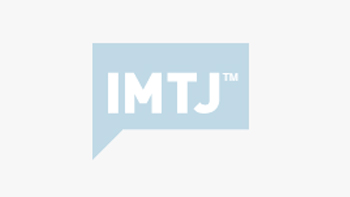Switzerland is often cited by the medical tourism industry as having excellent quality healthcare to match other top performers such as Germany. Switzerland is attracting an increasing amount of medical tourism business, despite the global recession. It shows that medical tourism is not just about offering the cheapest possible healthcare.
Switzerland is often cited by the medical tourism industry as having excellent quality healthcare to match other top performers such as Germany. Switzerland is attracting an increasing amount of medical tourism business, despite the global recession. It shows that medical tourism is not just about offering the cheapest possible healthcare.
Switzerland is one of several EU countries including Germany, France and The Netherlands where there is universal health care, not provided by the state such as in the UK or Scandinavian countries, but by competing private/non-profit health insurance companies,
The OECD has studied Switzerland’s health system and declared it high performing but warns that it must prepare for the future. Swiss residents currently enjoy easy access to a wide range of health care services and a vast array of choice in insurers and health care providers. However, in their “Review of Switzerland’s Health Care System”, the OECD and the World Health Organization warn that while the Swiss health system is currently amongst the best in the world, it will need to adapt to deal with increasing costs and rising chronic diseases such as cancer, cardiovascular disease and diabetes.
Switzerland’s life expectancy is amongst the highest in the world and positive patient satisfaction reflects the high performance of the Swiss health system. But it comes at a considerable cost: Switzerland spent 11.4% of GDP on health in 2009, well above the OECD average of 9.6%, according to OECD Health Data 2011.
Maintaining a large number of hospitals drives up costs. Though this system has served Switzerland well in the past, it will need to support the increasing numbers of patients suffering from chronic diseases who will need less intensive care on a more regular basis. Governments and insurers should encourage healthcare providers to co-ordinate their efforts by developing innovative payment methods and medical records that can help improve the accuracy of diagnosis and reduce duplication of tests.
The review recommends focusing more on primary care and preventing illness. Today, around 2.3% of total health expenditure is devoted to preventing disease and promoting good health. Signing a federal law on prevention, which clearly assigns responsibilities and provides the financial capacity to promote healthy lifestyles across the country, would help.
Planning now for the future health workforce would ensure that Switzerland is equipped to respond to growing demands and changes in the types of health care that patients need. This includes training more health personnel, attracting and retaining health professionals such as nurses, encouraging more doctors to become general practitioners, and improving human resource management in hospitals.
Greater effort is needed to collect data on health outcomes so Switzerland can track key health risks and map people facing those risks. At present, Switzerland reports on the quality of care in hospitals. That should be extended to the wider system in order to allow patients, insurers and governments to informed choices.
Further OECD/WHO recommendations to improve value for money in Switzerland and prepare the system for future health challenges include:
• Assessing the clinical and cost effectiveness of health services.
• Increasing the scope for value-based competition in health insurance, for example by allowing insurers to contract selectively with providers.
• Continuing with the implementation of funding hospitals based on the cases they deliver coupled with safeguards to avoid unwarranted increases in the number of services, and preventing undesirable subsidisation of inefficient hospitals.
• Pursuing further pharmaceutical reforms, encouraging patients to buy generic drugs and reducing the role of physicians in dispensing drugs.
• Monitoring the impact of health costs on households, such as high out-of-pocket payments and high-deductibles for insurance.








 ©2024 All rights reserved LaingBuisson
©2024 All rights reserved LaingBuisson 


